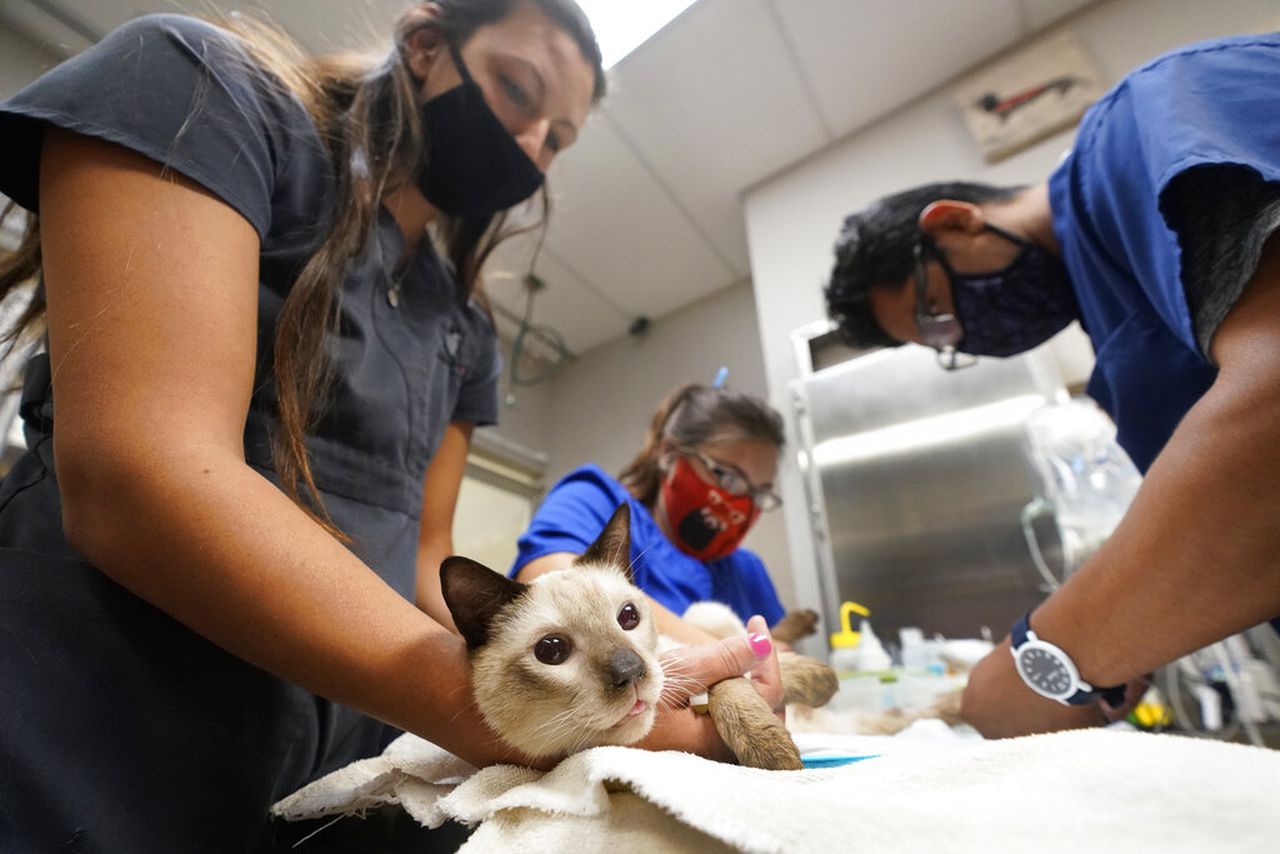Rabid cat in Alabama exposes 15 people
A cat with rabies exposed four members of a family in Russell County and 11 staff members at an Opelika veterinary hospital, according to a statement by the Alabama Department of Public Health.
In a separate case, a raccoon with rabies was identified in Lee County.
Both incidents raise awareness of the importance of vaccinations, officials said.
“Vaccinating your animals against rabies is the best way to keep your pets protected from the deadly virus,” State Public Health Veterinarian Dr. Dee Jones said. “Animal vaccinations also help protect people, who many times are exposed when the animal first becomes sick and before rabies can be confirmed, just as with this recent case in a cat.”
The cat was a stray that attacked the owner’s dog and the individual was exposed at the time. The cat was taken to a veterinary hospital where it was quarantined and subsequently died. It later tested positive for rabies.
One person in the clinic was bitten and 10 were exposed indirectly. In all, 15 people were exposed and received treatment at East Alabama Medical Center.
The raccoon with rabies in Lee County exposed one person. The most common rabies variant found in domestic animals is in raccoons, officials said, and it is especially common in some parts of Alabama, including Russell and Lee counties.
Rabies vaccines required
Alabama law requires all dogs, cats and ferrets to be vaccinated at 3 months of age and annually thereafter unless they receive a 3-year rabies vaccine. The first rabies vaccination is only good for one year, regardless of which vaccine a pet receives.
ADPH recommends the following to protect you and your pets against rabies:
- Do not allow pets to run loose, confine within a fenced-in area or with a leash.
- Do not leave uneaten pet food or scraps near your residence.
- Do not illegally feed or keep wildlife as pets.
- Do not go near wildlife or domestic animals that are acting in a strange or unusual manner.
- Caution children not to go near any stray or wild animal, regardless of its behavior.
“I ask everyone to please check their pet’s rabies vaccination status and to get them boosted immediately if they are not up to date,” said Dr. Homer Bruce, Lee County rabies officer. “Lastly, stray animals hanging around your property can expose you, your children, your pets, and your livestock to rabies. Please contact your local animal control agency for assistance with stray animals on your property. As always, please be ever vigilant and aware of wild animals hanging around and/or acting out of place on your property.”
Contact your veterinarian if you cannot determine your pet’s vaccination status.
